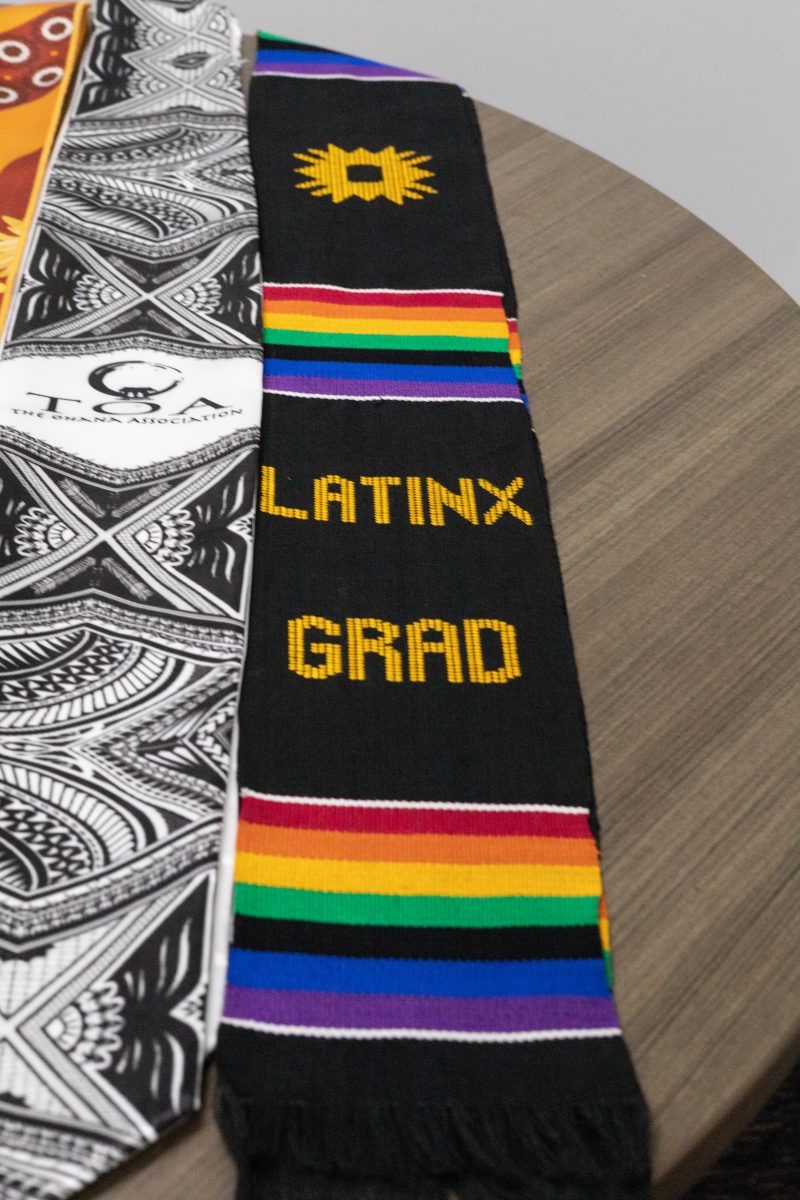Editor’s note: Thomas Alberts is currently employed with The Signpost as assistant managing editor.
For the first event in Weber State University’s observance of Holocaust Remembrance Week, the Center for Diversity and Unity hosted “Starting with Stonewall: The LGBT Movement in the US.” The screening and discussion, however, ended up focusing more on the treatment of LGBT individuals in the Holocaust.
Thomas Alberts, WSU’s Stop the H8 chair, invited WSU alumnus Jayson Stokes to lead a discussion on the documentary Paragraph 175, directed by Rob Epstein and Jeffrey Friedman. From 10:30-11:30 a.m., a small group of students watched select parts of the film, intercut with Stokes providing commentary and background information, in the Center for Diversity and Unity.
“It’s actually kind of interesting to note that the Germans didn’t persecute homosexuals in other countries that they conquered nearly as much as they did the homosexuals that were German nationals,” said Stokes, who was a member of the Diversity Board and Gay-Straight Alliance at WSU before he graduated last spring. “Because of the threat that they viewed to society, initially a lot of homosexuals in other conquered countries they thought as doing themselves an aid, in a sense, because they undermined that country’s population, and on top of that, they don’t care. One of the driving forces for the Germans was (increasing their own) population.”
Lonald Wishom, diversity vice president at WSU, attended the screening. He said what he found most interesting about the documentary was that it showed, although Paragraph 175 of the German Criminal Code decreed sexual acts between two males as illegal from 1871 to 1994, Berlin was actually something of “a homosexual Eden” before the Holocaust. According to the documentary, the LGBT community enjoyed a very visible scene while it was politically convenient for Adolf Hitler to ignore it.
“I think the thing that stood out to me the most was how open-minded Berlin was before . . . how they had openly gay clubs,” said Wishom, a junior in political science. “. . . I didn’t think that was even really talked about during that time.”
As his longtime ally, SA Commander Ernst Rohm, was known to be gay, Hitler took the stance that “his private life cannot be an object of scrutiny unless it conflicts with basic principles of National Socialist ideology” — until, as Stokes said, Rohm posed a threat to him.
“I think it was politically important for him to change. Before, it wasn’t so much of an issue; it was more politically advantageous for him to look the other way. But . . . I think once the time came, he saw Rohm as not an ally anymore but a threat, so he eliminated him. And he just used the fact that Rohm was gay . . . in order to justify it.”
One of the subjects of the documentary told about how his friend was stripped and mauled alive by dogs at a concentration camp for being gay. The film explained that lesbians were not punished as harshly, because their sexuality was seen as temporary and curable, whereas male homosexuality was viewed as a contagious disease posing a threat to the strength of the Aryan race. When lesbians were arrested, it was for being “asocial.”
“It’s always a thing for lesbians nowadays to be like, oh, well, men feel like they can be cured if they’re with the right man, so I could see that mindset still being there back then, and gay men still being treated like they can’t be cured as much,” said Alisha Stucki, a music education junior who also attended the screening. “So that was interesting to me.”
Stokes said he thinks the gay community tends to be overlooked as Holocaust victims for many reasons, but largely because homosexuality was already illegal in Germany.
“It wasn’t illegal to be Jewish or Polish . . . or mentally disabled, but it was illegal under the German penal code to commit homosexual activity already. So, by legal standards, the homosexual community was already viewed as criminals. So I think that definitely made their persecution draw less attention after the war.”
The Center for Diversity and Unity will continue hosting events for Holocaust remembrance throughout the week, including a poetry slam tomorrow at 11 a.m.




















